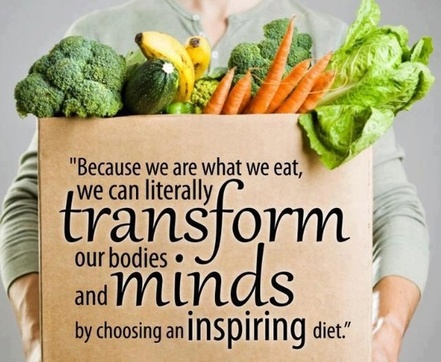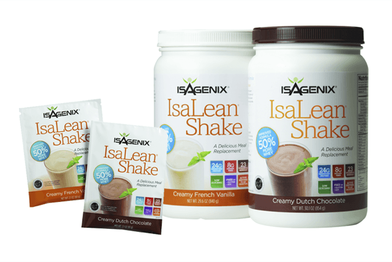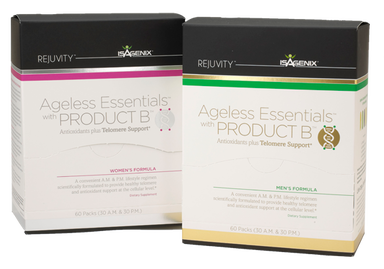9 REASONS
You’re Food Is NOT Enough
There is certainly evidence that consuming nutrients from a healthy diet can be more beneficial than relying strictly upon supplements, Even if you’re eating a “healthy” diet, studies have shown that it is nearly impossible in our modern era to get all our nutrients, vitamins and minerals only from food. For example, a recent paper by scientists from the Council for Responsible Nutrition in Washington reports:
|
“Large portions of the population had total usual intakes below the estimated average requirement for vitamins A (35%), C (31%), D (74%), and E (67%) as well as calcium (39%) and magnesium (46%). Only 0%, 8%, and 33% of the population had total usual intakes of potassium, choline, and vitamin K above the adequate intake when food and multivitamin use was considered. The percentage of the population with total intakes greater than the tolerable upper intake level (UL) was very low for all nutrients…”
“…Conclusions: In large proportions of the population, micronutrient sufficiency is currently not being achieved through food solutions for several essential vitamins and minerals. Use of age- and gender-specific multivitamin supplements may serve as a practical means to increase the micronutrient status in subpopulations of Americans while not increasing intakes above the upper intake level.” |
|

So how on earth could this be? Is the planet broken or something? There are actually nine reasons for the failure of modern diets to supply our bodies with all the nutrients we need.
First:
Modern commercial farming practices strip our precious soil of nutrients. When plants are repeatedly grown on the same land for year-after-year (a relatively new phenomenon in agriculture that beats up our land but gives us lots and lots of calories), the overused soil loses it’s nutrients faster than they can be replaced. Over time, the plants have fewer nutrients to grow, so the farmers are forced to fertilize. Fertilizer does indeed contain enough nutrition for a plant to survive until harvesting, but not enough nutrients to support your body’s nutrient needs. As discussed in the excellent book “Not On The Label: What Really Goes Into The Food On Your Plate“, this results in plants that up to 75% fewer micronutrients. This problem is compounded by the fact that most plants are not harvested fresh, and the nutrients degrade as they often sit on airplanes, trucks, shelves, and counters for weeks before they arrive on your plate.
Second:
Most modern fruits and vegetables are grown for maximum sugar calories, and not maximum nutrients, and because of this much of your fresh produce that us humans would have historically relied upon for nutrients are instead artificially high in calories, fructose and other sugars while being low in nutrients. And of course, this is all passed on to the animals (including you!) that are eating the plants. For example, one study in the Journal of Nutrition and Health found copper levels have dropped by 90% in dairy, 55% in meat, and 76% in vegetables!
Third:
Pesticides are making this problem even worse. Because polyphenols – a plant’s most potent antioxidants – are produced as a defense against bugs and pathogens, plants exposed to pesticides will be lower in precious polyphenols compared to organic ones. To make matters even more frustrating, even if you buy organic plants, this is no guarantee that they haven’t been exposed to pesticides! So unless you’re going out of your way to grow your own fresh fruits and vegetables in a pristine backyard garden which contains soil that you’ve treated with added minerals, you are at a huge risk for malnourishment and nutrient deficiency that adversely affects your performance, fat loss, recovery, digestion, brain, sleep, and hormone balance.
Fourth:
It’s not just nutrient-poor plants that are affecting the nutrient status of the actual animals we rely upon for food, but it’s also what many of those animals are being fed – especially grains. Compared to grass-fed meat, grain-fed meat is lower in antioxidants, micronutrients, fatty acids, minerals, and vitamins, but unfortunately, eating high-quality, organic grass-fed (and grass-finished) meat, pastured pork and naturally raised poultry is simply not a reality for many people living in urban environments or frequently traveling.
Fifth:
The nutrients in your food aren’t the only things that are disappearing – your liquids are being affected too. Unless you’re drinking from your own well, or relying upon fancy mineralized water such as Pellegrino, Perrier and Gerolsteiner, your bottled water, filter water and tap water is also often stripped of precious minerals - and if does indeed contain adequate minerals, these are typically accompanied by enormous levels of flouride and chlorine. So this means that unless you want to spend lots and lots of money on fancy water, you are stuck in a situation where you must filter your water to get rid of the dangerous stuff, then figure out other methods, such as supplementation, to get the minerals you’d normally be getting from the water.
Unfortunately, milk is not much better than water. The majority of nutrients in milk are found in the fat, so while organic raw, unpasteurized, full-fat dairy is high in nutrients, most of us simply don’t have ready access to it, especially at the typical grocery store. In addition, pasteurization can destroy many of the nutrients in both skim and full fat milk. Modern, conventional milk and other dairy products from grain-fed cattle can also be higher in aflatoxin and other mycotoxins, which increases your nutrient needs even more, creating a vicious cycle.
So whether it’s due to nutrient-poor plants, nutrient-poor animals, nutrient-poor milk, or nutrient-poor water, most diets are now so micronutrient deficient that they require on average 27,575 calories to supply all the essential nutrients that you need. In other words, in our modern era, you would need to be stuffing your face all day long to actually get what your body needs, and this does not into account the fact that if you are trying to lose weight by restricting calories or if you are a physically active person like a triathlete, marathoner, Crossfitter, weightlifter, or other exercise enthusiast, then your risk of nutrient deficiency is going to be even higher!
In other words, if you are A) trying to lose weight by not stuffing your body full of excessive calories or B) an athlete or physically active person, then you’re pretty much guaranteed to be at a constantly malnourished nutrient deficit (unless you figure out a way to somehow squeeze in all those added nutrients). The older you get, the fewer nutrients you absorb, so as you age, the worse things become. And that’s reasons six (weight loss), seven (exercise) and eight (age) that you may need a little help over and above what you’d get from food.
So let’s say you dig a well, grow your own produce, milk your own goats, eat strictly grass-fed meat and wild-caught fish, you’re relatively young and you avoid excessive physical activity or calorie restriction for weight loss. Then you’re safe, right? No added nutrients necessary, right?
The unfortunate ninth fact is that unless you live on a pristine mountaintop in the Himalayas, you’re exposed every day to airborne pollutants, xenoestrogens from plastics and BPA, environmental toxins, mold, industrial solvents, electromagnetic fields, heavy metals, fluorescent lighting, constant stress, sleep disruption and a host of other modern-day assailants upon your biology. Your body simply wasn’t mean to deal with these physiological stressors – all of which vastly increase your need for nutrients to help you fight the daily battle.
(Ben Greenfield)
First:
Modern commercial farming practices strip our precious soil of nutrients. When plants are repeatedly grown on the same land for year-after-year (a relatively new phenomenon in agriculture that beats up our land but gives us lots and lots of calories), the overused soil loses it’s nutrients faster than they can be replaced. Over time, the plants have fewer nutrients to grow, so the farmers are forced to fertilize. Fertilizer does indeed contain enough nutrition for a plant to survive until harvesting, but not enough nutrients to support your body’s nutrient needs. As discussed in the excellent book “Not On The Label: What Really Goes Into The Food On Your Plate“, this results in plants that up to 75% fewer micronutrients. This problem is compounded by the fact that most plants are not harvested fresh, and the nutrients degrade as they often sit on airplanes, trucks, shelves, and counters for weeks before they arrive on your plate.
Second:
Most modern fruits and vegetables are grown for maximum sugar calories, and not maximum nutrients, and because of this much of your fresh produce that us humans would have historically relied upon for nutrients are instead artificially high in calories, fructose and other sugars while being low in nutrients. And of course, this is all passed on to the animals (including you!) that are eating the plants. For example, one study in the Journal of Nutrition and Health found copper levels have dropped by 90% in dairy, 55% in meat, and 76% in vegetables!
Third:
Pesticides are making this problem even worse. Because polyphenols – a plant’s most potent antioxidants – are produced as a defense against bugs and pathogens, plants exposed to pesticides will be lower in precious polyphenols compared to organic ones. To make matters even more frustrating, even if you buy organic plants, this is no guarantee that they haven’t been exposed to pesticides! So unless you’re going out of your way to grow your own fresh fruits and vegetables in a pristine backyard garden which contains soil that you’ve treated with added minerals, you are at a huge risk for malnourishment and nutrient deficiency that adversely affects your performance, fat loss, recovery, digestion, brain, sleep, and hormone balance.
Fourth:
It’s not just nutrient-poor plants that are affecting the nutrient status of the actual animals we rely upon for food, but it’s also what many of those animals are being fed – especially grains. Compared to grass-fed meat, grain-fed meat is lower in antioxidants, micronutrients, fatty acids, minerals, and vitamins, but unfortunately, eating high-quality, organic grass-fed (and grass-finished) meat, pastured pork and naturally raised poultry is simply not a reality for many people living in urban environments or frequently traveling.
Fifth:
The nutrients in your food aren’t the only things that are disappearing – your liquids are being affected too. Unless you’re drinking from your own well, or relying upon fancy mineralized water such as Pellegrino, Perrier and Gerolsteiner, your bottled water, filter water and tap water is also often stripped of precious minerals - and if does indeed contain adequate minerals, these are typically accompanied by enormous levels of flouride and chlorine. So this means that unless you want to spend lots and lots of money on fancy water, you are stuck in a situation where you must filter your water to get rid of the dangerous stuff, then figure out other methods, such as supplementation, to get the minerals you’d normally be getting from the water.
Unfortunately, milk is not much better than water. The majority of nutrients in milk are found in the fat, so while organic raw, unpasteurized, full-fat dairy is high in nutrients, most of us simply don’t have ready access to it, especially at the typical grocery store. In addition, pasteurization can destroy many of the nutrients in both skim and full fat milk. Modern, conventional milk and other dairy products from grain-fed cattle can also be higher in aflatoxin and other mycotoxins, which increases your nutrient needs even more, creating a vicious cycle.
So whether it’s due to nutrient-poor plants, nutrient-poor animals, nutrient-poor milk, or nutrient-poor water, most diets are now so micronutrient deficient that they require on average 27,575 calories to supply all the essential nutrients that you need. In other words, in our modern era, you would need to be stuffing your face all day long to actually get what your body needs, and this does not into account the fact that if you are trying to lose weight by restricting calories or if you are a physically active person like a triathlete, marathoner, Crossfitter, weightlifter, or other exercise enthusiast, then your risk of nutrient deficiency is going to be even higher!
In other words, if you are A) trying to lose weight by not stuffing your body full of excessive calories or B) an athlete or physically active person, then you’re pretty much guaranteed to be at a constantly malnourished nutrient deficit (unless you figure out a way to somehow squeeze in all those added nutrients). The older you get, the fewer nutrients you absorb, so as you age, the worse things become. And that’s reasons six (weight loss), seven (exercise) and eight (age) that you may need a little help over and above what you’d get from food.
So let’s say you dig a well, grow your own produce, milk your own goats, eat strictly grass-fed meat and wild-caught fish, you’re relatively young and you avoid excessive physical activity or calorie restriction for weight loss. Then you’re safe, right? No added nutrients necessary, right?
The unfortunate ninth fact is that unless you live on a pristine mountaintop in the Himalayas, you’re exposed every day to airborne pollutants, xenoestrogens from plastics and BPA, environmental toxins, mold, industrial solvents, electromagnetic fields, heavy metals, fluorescent lighting, constant stress, sleep disruption and a host of other modern-day assailants upon your biology. Your body simply wasn’t mean to deal with these physiological stressors – all of which vastly increase your need for nutrients to help you fight the daily battle.
(Ben Greenfield)
IN SUMMARY–
Depleted soil, nutrient-poor produce, pesticides, conventional meat, sub-par water and milk, weight loss, physical activity, age, and our modern post-industrial living environment...
You definitely need to supplement your diet with premium nutrition from quality sources in order to manage weight, maintain a healthy body composition, disease prevention, and maximum nutrient absorption for optimal healthy living, and sports performance and training.
Depleted soil, nutrient-poor produce, pesticides, conventional meat, sub-par water and milk, weight loss, physical activity, age, and our modern post-industrial living environment...
You definitely need to supplement your diet with premium nutrition from quality sources in order to manage weight, maintain a healthy body composition, disease prevention, and maximum nutrient absorption for optimal healthy living, and sports performance and training.


